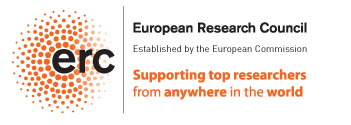Posters at The Budapest CEU Conference on Cognitive Development
Posters at The Budapest CEU Conference on Cognitive Development
Under Control team members presented posters at The Budapest CEU Conference on Cognitive Development, BCCCD17 Budapest, 4-7 January 2017
WHEN THE WINNER BECOMES THE LEADER
Jesús Bas, Núria Sebastián-Gallés
IS THE PRINCIPLE OF RATIONALITY IN INFANCY USED TO PREDICT SOCIAL AFFILIATIONS?
Marc Colomer, Jesús Bas, Núria Sebastián-Gallés
28.02.2017
Under Control team members presented posters at The Budapest CEU Conference on Cognitive Development, BCCCD17 Budapest, 4-7 January 2017
http://www.bcccd.org/index.php?menu=1
WHEN THE WINNER BECOMES THE LEADER
Jesús Bas, Núria Sebastián-Gallés
Recent research has demonstrated the capacity of infants to represent hierarchical relationships.
At 12 months old infants are able to recognize who is the winner in a conflict situation. Later, at 15 and 18 months old, they consider this role stable across tasks depending on how the winner achieves his goal (Bas,J. & Sebastián-Gallés, N., in prep.; Mascaro, O. & Csibra, G., 2012).
At 15 months-old, infants understand the different roles in a leadership relation (the leader, the non-leader and the followers) and expect that the followers always imitate the actions performed by the leader but not the reverse (Bas,J. et al, in prep.).
Here we study how all this concepts are related and understood by infants. Using an eye-tracker, we recorded 18-month-olds’ eye gaze behaviour while watching short animations where one agent observes how another two agents are able to take a ball if they try to do it alone. If they both want to do it at the same time only one of them prevails (always the same agent). After this familiarization, both agents offer to the observer to follow different paths: to go with the "winner" or with the "loser".
We measured the total looking time for both options and preliminary analyses indicate that infants expect the observer to follow the winner rather than the loser (mean-winner= 12,81 sec.; mean-loser= 17,02 sec.; p= 0,04). These results suggest that infants consider the success as a feature of leaders. We will further discuss all the implications of this assumption.
IS THE PRINCIPLE OF RATIONALITY IN INFANCY USED TO PREDICT SOCIAL AFFILIATIONS?
Marc Colomer, Jesús Bas, Núria Sebastián-Gallés
Based on the principle of rationality, pre-verbal infants expect individuals to act using the most efficient way to achieve their goals (Gergely et al. 2002; Skerry et al. 2013).
All the studies that addressed this principle used non-social contexts. However, people's actions usually take place in a social environment, where their behaviours influence the way other individuals interact with them (Singer et al. 2006).
Taking into account that infants are sensitive to the link between people's behaviours and social affiliations (Liberman et al. 2014; Powell & Spelke, 2013), here we address whether the rationality of others' behaviours is used to generate expectations about third party affiliations.
By using an eye-tracker we record 15 old-months infants' eye gaze behaviour while watching short animations, where an agent observes two other agents jumping a constraint to get a reward. At some point, the constraint is removed and one agent adapts his trajectory to a shorter one to get the reward (rational agent), while the other agent keep doing his old long-path trajectory (irrational agent). Finally, both agents go to call the observer simultaneously and he has to choose to affiliate with the rational agent (congruent affiliation) or with the irrational one (incongruent affiliation).
Data collection is still under way. Preliminary data point in the direction of infants being surprised when seeing the incongruent affiliation as compared to the congruent one.

